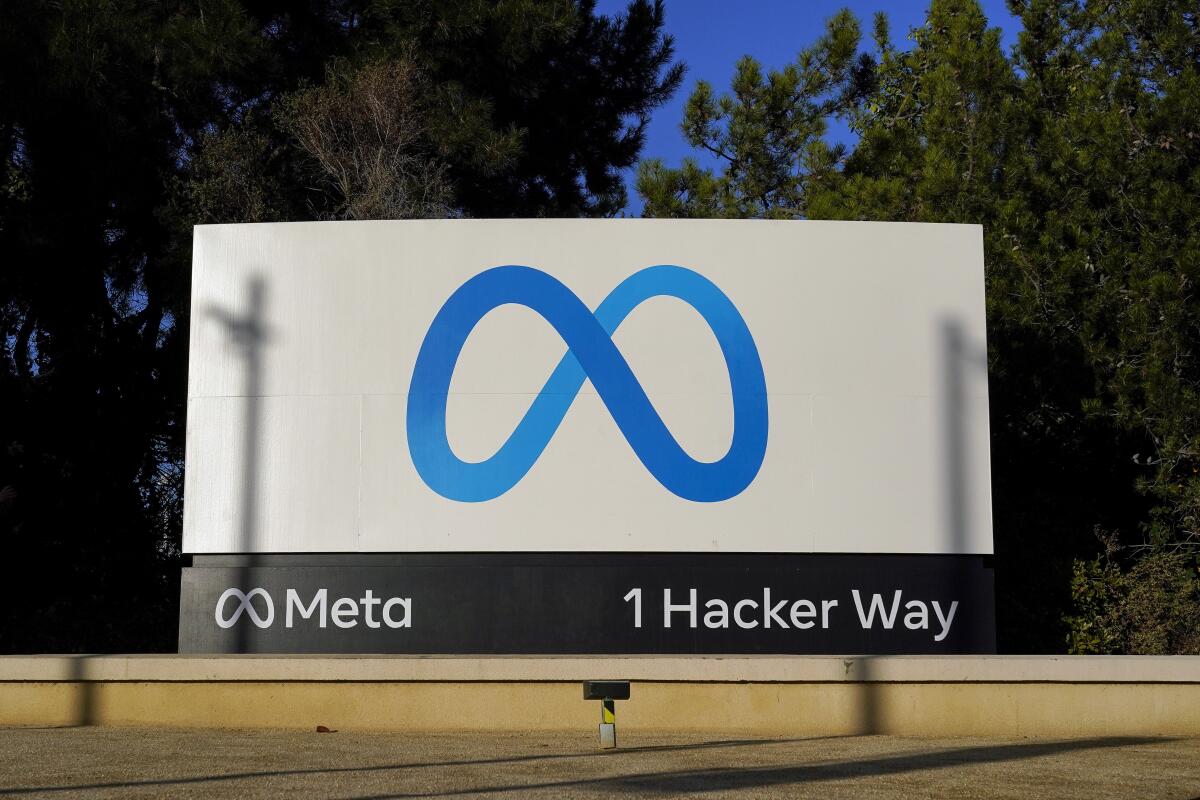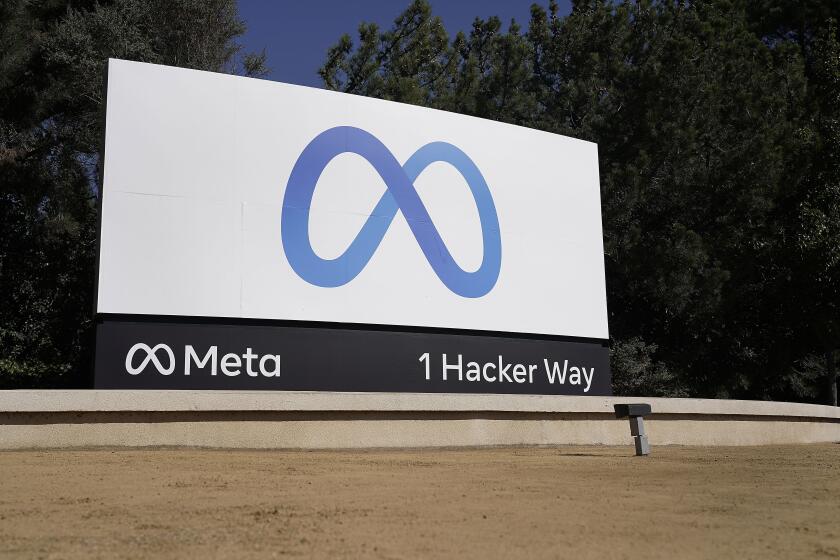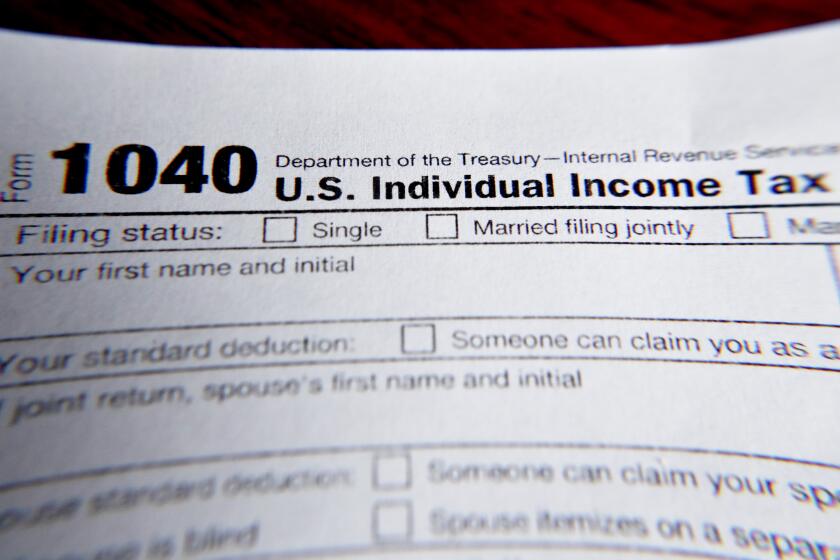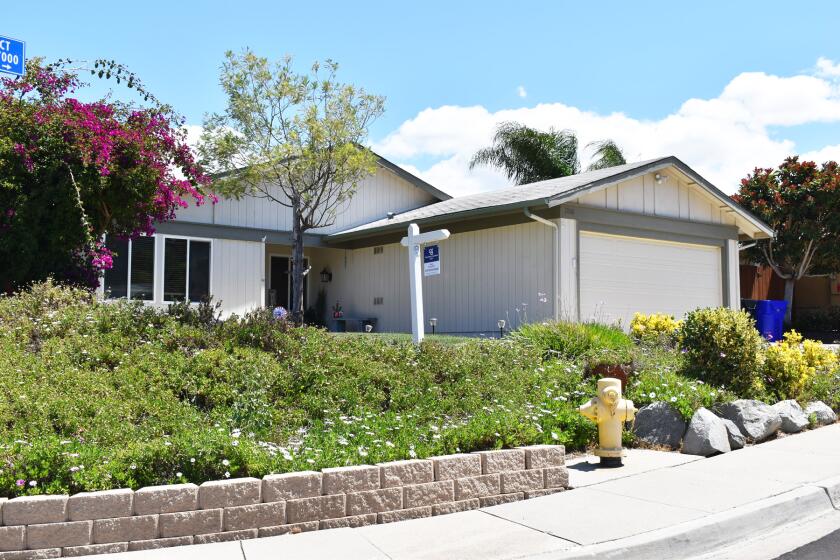Free cash coming to Facebook users. Here’s how to claim your share

- Share via
Facebook earned more than $110 billion last year by selling advertisements targeted at its users, powered by the data Facebook collected from them.
Now, Facebook users have the chance to collect something back.
A federal judge has tentatively approved an agreement between Facebook’s parent company, Meta, and lawyers for U.S. Facebook users to settle multiple class-action lawsuits brought in the wake of the Cambridge Analytica scandal in 2018. Meta denies the allegations that it shared users’ data with third parties without permission, but it has nevertheless agreed to pay $725 million into a fund to settle the cases.
Final approval of the settlement isn’t expected for several months, but the preliminary decision opened the door for U.S. Facebook users to file claims — in essence, putting themselves in line for whatever money is paid. How much you collect will depend on three factors: how big the attorney fees and expenses are, how many of the estimated 240 million U.S. Facebook users file claims, and how many years you spent on Facebook.
The proposed settlement would give 25% of the fund to the plaintiffs’ attorneys for legal fees, plus an unspecified amount for legal expenses. That will leave something less than $544 million to be split among those who file claims.
So maybe don’t tell your friends about this?
Here’s what you need to know about the proposed settlement, how to file a claim, and what your options are if you don’t want to be part of the class covered by the agreement.
The scandal involved disclosures that a U.K. research firm connected to Donald Trump’s 2016 presidential campaign accessed the data of 87 million Facebook users.
What are the lawsuits about?
Facebook has been accused many times over the years of hoovering up personal information, then deploying it in ways that users hadn’t known about or consented to. The spate of lawsuits covered by the settlement claimed that the network shared or otherwise made personal information accessible without permission to third parties, including app developers, business partners, advertisers and data brokers, then failed to monitor what was done with it.
The most notorious of these third parties was a personality quiz app that collected information from about 270,000 people who downloaded the app and, unbeknownst to them, their Facebook friends as well, including an estimated 71 million Americans. The app developer sold the data to Cambridge Analytica, a political consulting firm that used the insights to try to sway voters on its clients’ behalf.
After the scandal came to light, the Federal Trade Commission fined Facebook $5 billion for violating a 2012 order to protect users’ privacy. But that money went to the U.S. Treasury, not to the millions of users whose privacy was violated.
The class-action lawsuit, by contrast, aims to compensate Facebook users.
Many software options will let you file your taxes and get your tax refund for free. And for most Californians, the tax deadline has been moved to Oct. 16, 2023, to file federal and state.
What are the settlement details?
The Notice of Proposed Settlement lays out the steps you’ll need to take if you want to claim a piece of the settlement or hold out for something else. Here are the key points:
Who can file claims? Anyone who was in the United States and had an account on the social network between May 24, 2007, and Dec. 22, 2022.
How do you file? By filling out a form online or downloading the claim form and then mailing it to Facebook Consumer Privacy User Profile Litigation, c/o Settlement Administrator, 1650 Arch Street, Suite 2210, Philadelphia, PA 19103.
What information do you have to provide? Just your Facebook user name, or the phone number or email address associated with your account, along with your contact information and your choice of payment (prepaid MasterCard, PayPal, Venmo, Zelle, check). If you are no longer a Facebook user, you’ll need to provide the month and year you joined and the month and year you quit.
What if you had more than one Facebook account? You can submit only one claim. The settlement administrator suggests filing a claim for the account you held the longest.
Is there a penalty for a false claim? Yes. By signing and submitting the form, you are swearing under penalty of perjury that the information in your claim is true.
What’s the deadline for submitting a claim? Online claims must be submitted by 11:59 p.m. Pacific time on Aug. 25, 2023. If you’re mailing your form, it must be postmarked by that date.
What if you don’t want to be part of the class? You’ll have to opt out by July 26; otherwise, any claim you might have against Meta for issues covered by the settlement will be extinguished. You can opt out only for yourself, and can do so online or by mail, following these instructions.
What if you object to the proposed settlement? If you are part of the class covered by the lawsuit, you can submit a claim and still argue that the settlement is inappropriate for some reason — for example, because the settlement amount is too low or the attorney fees are too large. The catch is, you can’t ask the court to change the terms; it can only approve or reject the settlement as proposed. Objections must be filed in writing, either by mail or in person at one of the offices of the U.S. District Court for the Northern District of California, following these instructions.
When will you be paid? The court is scheduled to hold a final approval hearing Sept. 7. Payments can’t begin until the settlement agreement is approved and attorney fees and expenses are determined.
How much will you receive? Again, this depends on how much money is left in the $725 million pot after fees and expenses are paid. The agreement also proposes to pay $15,000 to each of the plaintiffs who represented the class; the eight named in the settlement would reduce the pot by $120,000. To divvy up the rest of the money, the settlement administrator will assign claimants one point for each month they had an activated Facebook account during the period covered by the lawsuit. The administrator will add up the points, calculate how much is to be paid per point, then award claimants according to the number of points they accumulated.
California has put its down payment assistance program for first-time home buyers on hold, having committed all $300 million in just a few weeks. It’s not clear when new loans will be available.
About The Times Utility Journalism Team
This article is from The Times’ Utility Journalism Team. Our mission is to be essential to the lives of Southern Californians by publishing information that solves problems, answers questions and helps with decision making. We serve audiences in and around Los Angeles — including current Times subscribers and diverse communities that haven’t historically had their needs met by our coverage.
How can we be useful to you and your community? Email utility (at) latimes.com or one of our journalists: Jon Healey, Ada Tseng, Jessica Roy and Karen Garcia.
More to Read
Totally Worth It
Be your money's boss! Learn how to make a budget and take control of your finances with this eight-week newsletter course.
You may occasionally receive promotional content from the Los Angeles Times.










